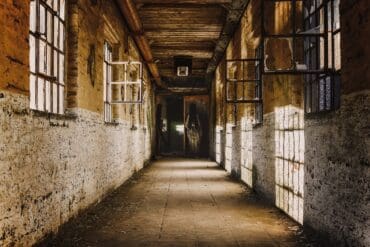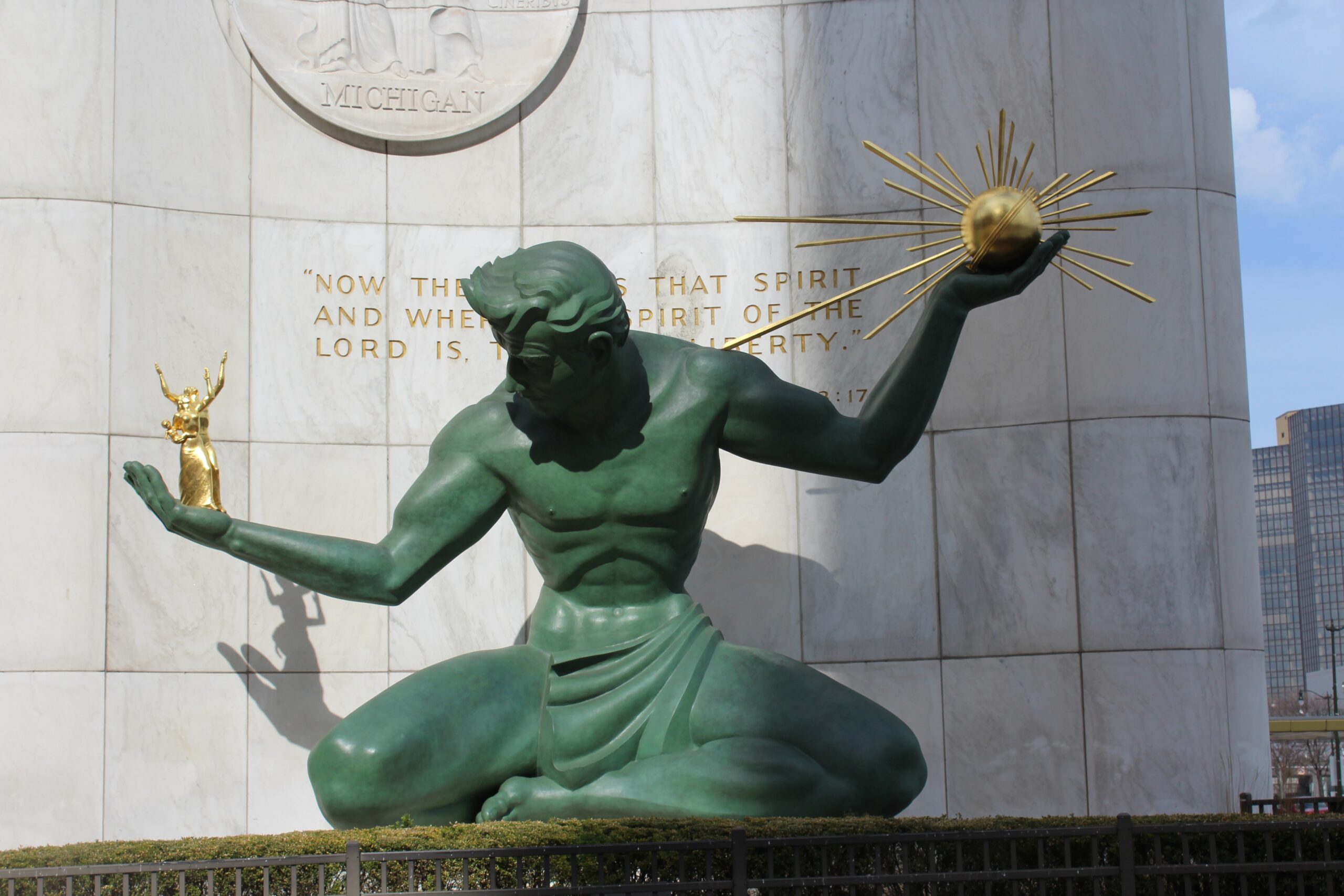On Emerging Liberated of the Glass Box
Author’s Memo
Like many others in the American South, I began my teens with full faith in the black and-white nature of the Bible. The story of Sodom and Gomorrah seemed so clear cut, so innately logical that Mississippi’s standing Anti-Sodomy laws were unquestioned. The issues of gender and love were quelled by my conservative upbringing. It was in these early teenage years, however, that I would be forced to challenge my own beliefs in the perfection of written religion.
Thus, my nature as a gay man conflicted with those drilled ideals from which I assumed morality stemmed.
That battle, and the subsequent impatient desire to express myself, left me with a mixed bag: I learned to accept myself, yet felt alone and doomed to keep my defining nature secret. In that unsure stage, I read A Thousand Splendid Suns by Khaled Hosseini, in which he wrote that “of all the hardships a person had to face, none was more punishing than the simple act of waiting.” And, as a gay teen in a Christian family, those words stuck with me. They stuck ever Sunday when a congregation sang in love and praise of a God who condemned and hated my love. It stuck when a fellow student wore a Confederate flag hoodie for weeks without punishment, and when groups of athletes called each other faggots for acting at all too feminine.
Like many others in the American South, I began my teens with full faith in the black and-white nature of the Bible.
As I began to drown, writing acted as a way to escape my solitude and the harsh realities outside my bedroom. But, in my writing, researching, and maturing, I came to the hollow revelation that my story was not unique. I saw that I am not alone; that is only the case because so many have lived in fear of true expression. Some hide their nature and grow old. Many reject society, and they relish in the freedom of personal fulfillment. And far too many die before they can choose either path, whether by treatable disease or suicide, both all too common due to a society that deems abnormality unnatural.
‘Like many others in the American South, I began my teens with full faith in the black and-white nature of the Bible. The story of Sodom and Gomorrah seemed so clear cut, so innately logical that Mississippi’s standing Anti-Sodomy laws were unquestioned.
From my life, I created the autoethnographic short story, “The Glass Box.” It offers a figurative expression of the constraints created by being closeted, displaying how denying oneself is a barrier that keeps the outside world, love, and relationships, as unreachable desires unable to blossom. “The Glass Box” turns abstract burdens—faced by every member of the LGBT+ community—into tangible walls, existing as both protectors and killers. Escaping the trap doubtlessly means that people I love unconditionally will walk away, and there is seldom a queer individual with the gift of being able to say otherwise.
In many ways, “The Glass Box” reflects my unfulfilled dreams. I still live in my mother’s home, deep within the South. In this house, a place of brick and mortar, the only fractures in the walls are my own; my family, still unaware of my identity, view me as another pedestal of conservative hypocrisy and tyranny. Yet, this story also represents accomplished dreams. Like so many, I have built a safety net of people who know, and that group has grown so large that they’ve become my family of friends, teachers, and even a sibling.
From them, I learned what so many gay youths die before understanding: there are people who love me unconditionally. Life outside of the safety of seclusion is painful and takes away more than anyone who has come out ever expected. Those I trust more than blood still see me differently. The occasional joke—often in good humor—spotlights my homosexuality as nothing more than comic material. Strangers who give me a second glance leave me questioning what they might know, and what impression that has left upon them.
‘The issues of gender and love were quelled by my conservative upbringing. It was in these early teenage years, however, that I would be forced to challenge my own beliefs in the perfection of written religion.
Thus, my nature as a gay man conflicted with those drilled ideals from which I assumed morality stemmed.
Still, life outside of the confines of seclusion gifts the modern gay man with unprecedented freedom. The AIDS epidemic, at the time a mysterious plague that wiped out a generation of gay men, is now preventable and treatable with PrEP and other modern medications. President Obama’s progressive push attacked and crippled the popular stigma against the LGBT community, allowing Pride to act as a celebration of an emerging culture, rather than a clashing of two. In these ways, “The Glass Box” offers an autoethnographic story about the grief that accompanies coming out, along with the hope that unites humanity as one: to be loved.

From his window, Martin could see the first snow drift past; it fell to the streets and vanished in a sea of hot concrete, but it would be hours before the first flakes would stick. He held his hands to his mouth and sighed, but the warmth his breath gave failed to hold. The apartment’s heater had given out the night before, and Paul wouldn’t get back with the firewood for another hour. The city outside was still bustling as worldly companies and city bakeries all sprang to life out of fear of falling behind in the weather.
But Martin was alone, and the apartment was quiet. The city kept it from being as silent as he’d once been used to, but this seemed somewhat close in his ever-fleeting memory. The obvious difference was the absence of cicadas and toads screeching their mating calls and the many birds singing their arguments and conversations in the trees. He relished in the silence still, appreciating its subtle reminder of the life he lived before.
The past had always been dangerous to him, always threatening to scrape up some misgiving or insult. Paul knew this and only talked about it when Martin brought it up first, as if it were a line that shouldn’t be crossed.
‘From his window, Martin could see the first snow drift past; it fell to the streets and vanished in a sea of hot concrete, but it would be hours before the first flakes would stick.
With resolution in his eyes, Martin grabbed a blanket and hoisted himself up with a grunt. He tossed it around his arms and slowly made his way to his bedroom; the cane he’d taken to using in years past stayed at attention by the chair, left forgotten by the determination of his user. Martin—with his hand on the wall for support—opened a drawer in his dresser that he hadn’t touched since ’15. From it he produced a dusty, tightly bound cloth package. The string, once a strong guardian from its contents, fell away as though time had weakened its grip. He set it atop the dresser and allowed the cloth to unfold. Inside were pictures strewn with Glass shards mixed in.
Pushing the pictures aside, he grabbed the sharpest of the Glass and ran its side softly down his finger. For the first in decades, he felt strength enough to venture into a world he had failed to forget.
By all accounts and memories he had heard, Martin’s birth had been a joyous one. He had met the outside world with a smile and kept it. His parents loved him and cherished the ground he drooled and squirmed on. There was no moment in the first three years of his life that he went neglected or unloved, which only changed when his sister was born. Yet, even with the stress of another child, they still made time for him.
At a young age, the Church and his schoolwork were both steadily encouraged by his parents and relatives. He learned to read and then to write, doing both faster than his peers. He listened in class and played hard with his friends; he prayed every night and was baptized at five.
‘But Martin was alone, and the apartment was quiet. The city kept it from being as silent as he’d once been used to, but this seemed somewhat close in his ever-fleeting memory.
Little else is important about those early years. Martin’s family disciplined and raised him in every direction they saw fit, and he absorbed the teachings of those around him with wide, interested eyes. But life is rarely so simple and straightforward. With the routes chance tends to take, there can be no existence of normality without abnormality to challenge it.
When he began to grow fully conscious, Martin realized that he was unlike his mother, father, and sister. He could not fully relate to his classmates, and the words of his pastor reached a sinner. He talked like his family, looked like them, ate the same meals, and breathed the same air; still, he could not be himself around them.
At first, he tried to bury it, to kill it, and return to life as it had been. But, as a wild lion living in a zoo must come to understand, Martin learned that fighting an actuality leaves every illusion except the reality of pain. However, the truth was a knife that threatened to cut into every fabric of his life. To protect himself and those he loved, he stepped into the Glass Box and locked himself in.
To his surprise, living in the Glass Box was not all that difficult. In fact, he acted just as he did before. Martin memorized and recited the same prayers, talked to the same friends, and ate every dinner at the table with his family. Soon, he grew comfortable in it, nearly forgetting the staleness of the air or the occasional condensation blocking his view.
‘By all accounts and memories he had heard, Martin’s birth had been a joyous one. He had met the outside world with a smile and kept it. His parents loved him and cherished the ground he drooled and squirmed on.
The only differences he made in his life were around some of the people his age. He avoided locker rooms and distanced himself from certain people he felt himself growing overly attached to. Of course, actions like these were frustrating and often ate at him, but he always felt that he had made the right decision. Life in the Glass Box was certainly better for him than being in the exposed air.
After what must have been a year inside, Martin went with his family—as he did every Sunday—to Church. That morning, the preacher shouted of ever-growing sin and the depravity of love, pointing to Genesis 19 as a warning of what was to come. The preacher’s words slammed into the Box as Martin sunk deeper into his seat. “And they will sink in the Lake of Fire!” were the closing words, and they shattered against the side of the Glass Box. When Martin glanced to the side, he noticed, for the first time, a crack.
When they got home, Martin retreated to his room and started pacing. He worried that someone had seen the crack; if they had, they could spread rumors and then his life would threaten to shatter. He happened to glance again and to his shock, the crack had slightly grown. Frozen in his gaze, a tear slipped down his cheek. He felt it grow weighty and then fall, leaving him to stare at its dark scar on the carpet, took a deep breath and then another and sat on his bed and rested his weight against the back of the Box. To his relief, the crack had stopped spreading.
‘Little else is important about those early years. Martin’s family disciplined and raised him in every direction they saw fit, and he absorbed the teachings of those around him with wide, interested eyes.
As time passed, Martin realized that he was lucky in that his oddity was a rare and a seemingly nonexistent issue in his rural world. He could go weeks without hearing its mention, allowing his secret to lie soundly secure within the Glass Box.
Of course, it only took the occasional event to let the cracks build. Learning of religious executions of hundreds of men in the Middle East, his father only irked that Christian teachings could have converted them. A boy who laughingly called his friend slurs without a second thought, a newspaper segment praising the removal of two soldiers from the military, and the loud “Amen!” from his mother during the most targeted sermons all battered the Glass Box.
‘But life is rarely so simple and straightforward.
It was one morning that Martin, by then in his second year of college, realized that the cracks in the Box had spread irreparably. He squinted and rubbed the walls to no avail: he could not see the world beyond the fractured Box. The Glass Box that had protected from every hit and comment now imprisoned him.
Martin spent a few long days in his Glass cage. The Box was as weak as his heart, but he could not find the strength to break it. He stumbled his way to his classes and then back to his dorm. Unable to study, he sat lifelessly inside of the Glass Box. In the dead of night, three days into his imprisonment, he made his way to the showers.
Vulnerable and alone, he stood under the water, hoping that it could wash away some of the pain. Instead, the water ran down the sides of the Box, accumulating around his feet and washing into the drain. His body was left dry, cold, and humid amidst the air that had grown sour from a lifetime of stagnancy. And then, for the first time in years, he felt a drop of water splash against his naked shoulder. Startled, he backed out of the water and stared at the ceiling of the Glass Box. It was white with veiny patterns of cracks that coated its surface but showed no signs of breakage.
‘As time passed, Martin realized that he was lucky in that his oddity was a rare and a seemingly nonexistent issue in his rural world.
Cautiously, he slipped back under the water and looked for the weak point. Another drop struck his shoulder, and this time he saw why. There was a loose bit of Glass that almost threatened to fall under the weight of the water. He consciously slipped his hand up to the piece and ran its side softly down his finger, wincing as he pulled back with a long cut going down. Martin reached for it again, this time digging his fingernails into the fracture; a stream of blood began to pour down his hand, streaking past his wrist onto his forearm. Even still, he managed grip the piece of Glass and pulled. Holding the sharp shard of Glass in his hand, Martin saw for the first time in three days. Holding the sharp shard of Glass in his hand, he saw past the Box for the first time in a decade.
With clarity guiding his strikes, he started thrusting the shard into the sides of the Glass Box. Pieces of it splashed in the puddle below him and water began to pour over his face and body. Martin screamed as he struck the Box one last time. It dissipated, leaving a mass of broken pieces around him.
He could go weeks without hearing its mention, allowing his secret to lie soundly secure within the Glass Box.
The next day, he told his parents and sister who he truly was. With the phone resting against his ear, he listened as his father screamed and berated him; he heard his mother gasp and then sob with growing anguish; he noticed the silence of his sister, who he knew was watching his mother and father with a shared pain.
Without the Glass Box to protect him, every word they said slammed into his chest, each targeted projectile meant to tear at or plea with him. Martin felt them crash against his chest and stomach, rip across his limbs, and cut his face and eyes. But he listened until his father’s voice began to rasp, cracking at the beginning of each new barrage. His mother’s cries had turned dull, and his sister’s presence lost its effect.
‘Martin spent a few long days in his Glass cage. The Box was as weak as his heart, but he could not find the strength to break it. He stumbled his way to his classes and then back to his dorm. Unable to study, he sat lifelessly inside of the Glass Box. In the dead of night, three days into his imprisonment, he made his way to the showers.
So, he said his goodbyes while holding his head shakily but high. He knew his voice was strong; they could not tell that his eyes had reddened from the flow of salty tears. His parents chose not to respond to his last gesture, instead starting anew with another re-energized spew of grime and hate.
At the time, Martin did not realize their anger would permanently scar. Days of separation turned to months, and still persisted. Even his sister refused to accept his calls or respond to a letter he sent as an olive branch. His wounds eventually did mend, but he was left unbound, with no roots to call home. He spent the holidays wandering an empty campus, always decorated for the occasion but devoid of anyone to celebrate it.
He met Paul during his final year of college, and the two instantly clicked. Paul saw Martin’s scars, and tried to help him find a life beyond them. The two began spending the holidays with Paul’s family, who welcomed both with open arms. Finally, even without his parents, he found not just someone, but many who would have him as he is.
Those scars never did disappear. Martin’s father died in January of 1989, and his mother joined him soon after. He was not invited to either service, and only learned of their passage from a letter his sister sent. In his desire to mourn, he responded in hopes that the two could reconnect. To his surprise, she was open to the idea, and flew out to see him shortly after. The siblings talked of lost time and happy memories, catching each other up on lives lived apart and reminiscing about a world once shared.
‘Without the Glass Box to protect him, every word they said slammed into his chest, each targeted projectile meant to tear at or plea with him. Martin felt them crash against his chest and stomach, rip across his limbs, and cut his face and eyes.
As they got more comfortable, Martin realized that she was avoiding talking about the phone call. Furthermore, She avoided discussions about how his life changed outside of the Box, or even its existence. Reflecting on his own scarred body, he knew she was doing it to protect herself, hoping her own cracks would not show. Her cage had blinded her too, yet she had chosen the safety of staying inside rather than the freedom of escape.
Martin decided not to force it. As they stood to leave, he slipped a tiny package of cloth from his pocket, bound by string. “I want you to have this,” he said, slipping it into her hand. “You need it more than I do.”
She never did reach out to him again.
A knock at the door made Martin snap back to the present. He set the Glass shard back onto the other remains of the Glass Box; he limped toward the door. Paul was back with the firewood, and the snow had just started to stick.
Credits
Image of a dandelion by JR Korpa for Unsplash
Featured Image by Christian Ladewig for Unsplash
Learn More
New to autoethnography? Visit What Is Autoethnography? How Can I Learn More? to learn about autoethnographic writing and expressive arts. Interested in contributing? Then, view our editorial board’s What Do Editors Look for When Reviewing Evocative Autoethnographic Work?. Accordingly, check out our Submissions page. View Our Team in order to learn about our editorial board. Please see our Work with Us page to learn about volunteering at The AutoEthnographer. Visit Scholarships to learn about our annual student scholarship competition.
I'm an aspiring gay writer living in Mississippi. This fall, I will begin attending the University of Alabama. My writing focuses on cultural commentary, and typically revolves around the plight of the LGBT community.










